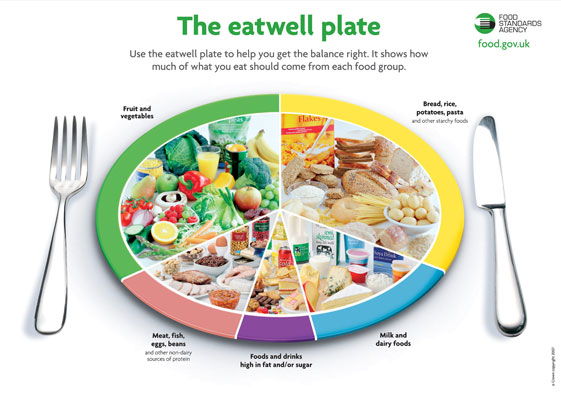Looking after yourself
Caring can be rewarding but it can also be very tiring, placing demands on your physical and emotional energy. As a carer you need to be as healthy as possible to ensure you are able to continue with your caring role. It is easy when you are coping day to day and responding to the needs of others, to forget your own wellbeing.
Sadly, one in five carers report that their health suffers as a direct result of caring. For example, without proper training carers are especially prone to back problems. Many of the most serious health problems carers suffer from, such as heart disease or mental breakdown, are a direct result of stress.
Caring without a break, without proper sleep and without support is extremely stressful. It is important that you recognise this and take it seriously. Remember that a little can go a long way so when you can, try and take some time out to do something for yourself.
Healthier Lifestyle - Looking After Yourself
Eating well
We all know that eating well is important, but when you are caring for someone it can often be difficult to prepare and eat healthy balanced meals and ensure you are getting the right nutrition.
Eating a healthy, balanced diet is vital for maintaining good health for us all. This includes eating foods from all the different food groups. Sometimes it can be a struggle to eat the right amounts of certain food groups. The eatwell plate shows the portions of the different food groups we need to eat each day to have a balanced and healthy diet.

Based on the eat well plate you should try to:
- eat plenty of starchy food - Bread, breakfast cereals, potatoes and pasta are a good source of energy. Always choose wholegrain varieties where you can.
- eat plenty of fruit and vegetables - Aim for five portions a day to provide you with a good source of vitamins and minerals. 1 portion is equivalent to: 1 apple, 1 medium banana, 7 strawberries, 1 handful of grapes, 150ml glass of unsweetened orange juice, dessert bowl of salad, 3 heaped tablespoons of mixed vegetables.
- eat some protein - Meat, fish, eggs, beans are a good source of protein.
- eat some dairy foods and drink milk - Cheese, yogurt or choose low-fat options if trying to reduce fat in your diet.
- limit the amount of foods high in fat or sugar - Such as crisps, chocolate, sweets.
Tips for eating well on a budget
If you are on a budget, there are simple and affordable ways to shop for a healthy, balanced diet:
- Use supermarket own brands as a cheaper alternative to branded products.
- Look out for offers on foods that keep, such as tins of pulses or tomatoes.
- Dried, frozen or canned fruit (in juice) and vegetables are cheaper than fresh varieties – and just as healthy.
- When you buy fresh fruit and vegetables, it can be cheaper to buy them loose rather than pre-packaged. In addition, it is usually cheaper to buy fruit and vegetables when they are in season.
- Supermarkets often reduce prices on products that are close to their sell by date and this can be a great way to pick up a bargain. But be sure you can cook or eat everything you buy (or are able to freeze it) before it goes off.
- When making meals, prepare large quantities and freeze the extra portions. This can be a cost and time effective way of maintaining a balanced diet.
The attached documents are full of ideas, quick recipes and handy tips for health lifestyles:
The importance of eating well for carers
Change for life food smart recipes
Young carers recipe book